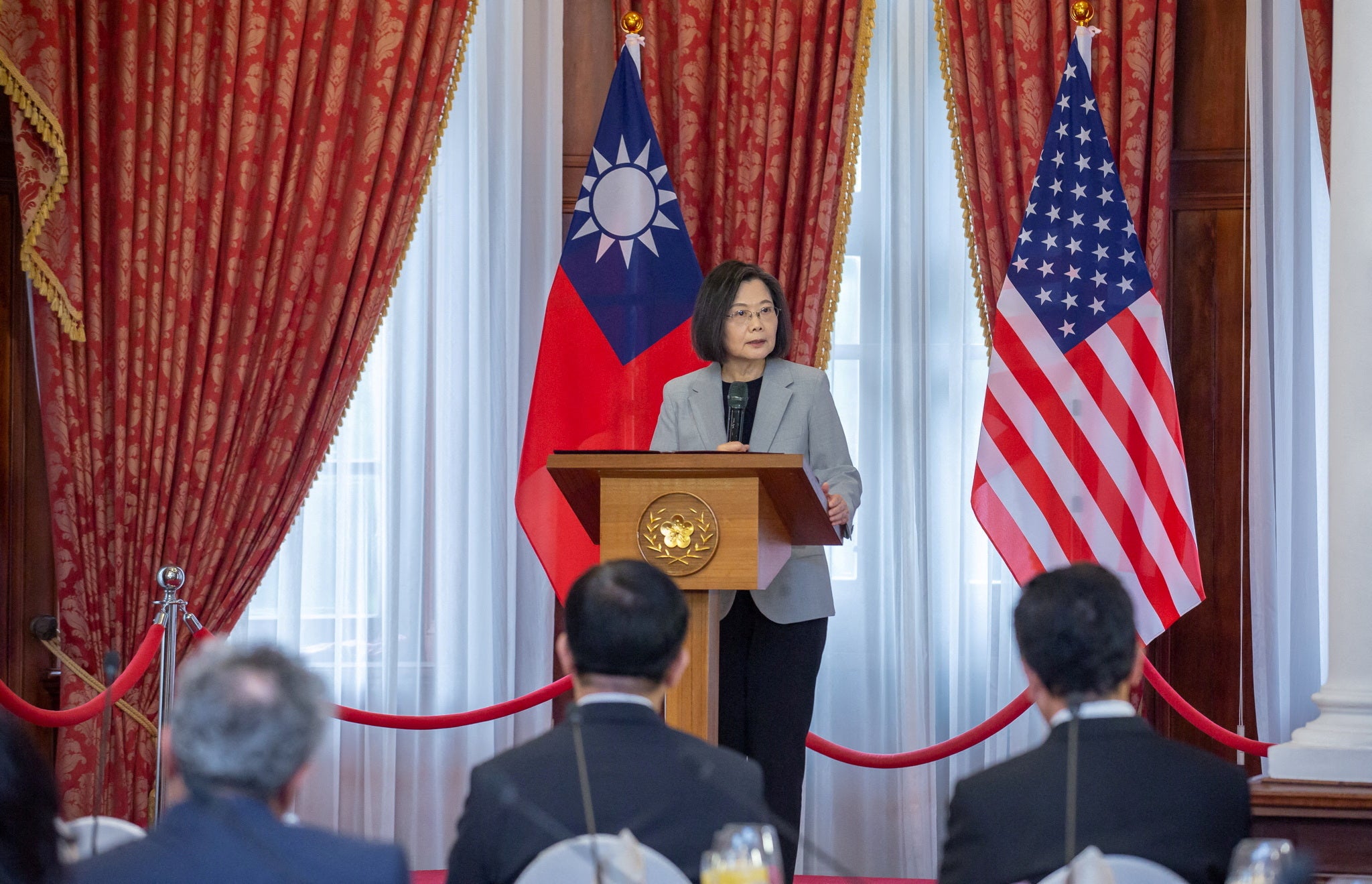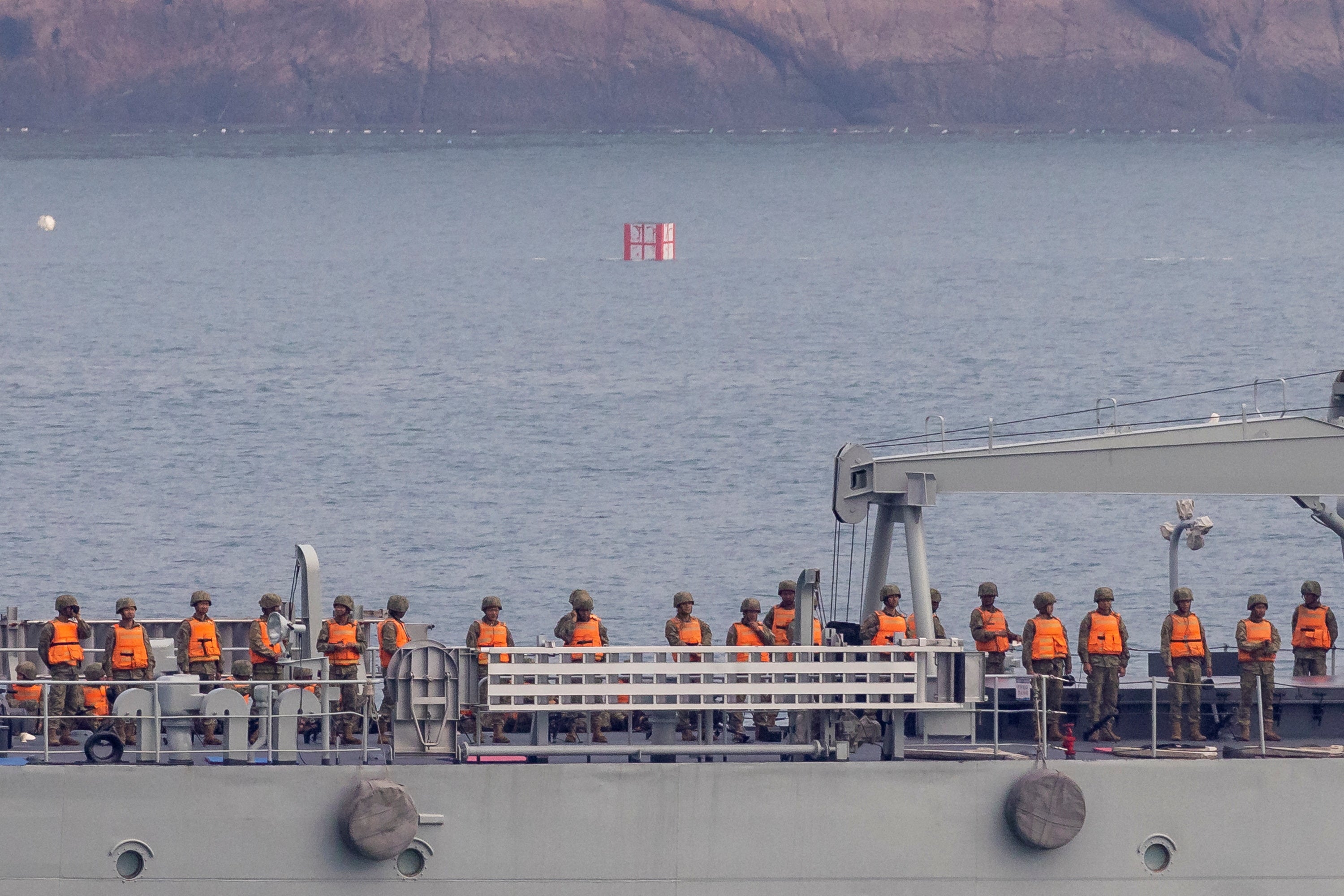Taiwan says Chinese warships remain around island even after Beijing claims drills have ended
Taiwan’s defence ministry says eight Chinese ships remain in waters around the island
Your support helps us to tell the story
From reproductive rights to climate change to Big Tech, The Independent is on the ground when the story is developing. Whether it's investigating the financials of Elon Musk's pro-Trump PAC or producing our latest documentary, 'The A Word', which shines a light on the American women fighting for reproductive rights, we know how important it is to parse out the facts from the messaging.
At such a critical moment in US history, we need reporters on the ground. Your donation allows us to keep sending journalists to speak to both sides of the story.
The Independent is trusted by Americans across the entire political spectrum. And unlike many other quality news outlets, we choose not to lock Americans out of our reporting and analysis with paywalls. We believe quality journalism should be available to everyone, paid for by those who can afford it.
Your support makes all the difference.Chinese warships were still present in the waters around Taiwan on Tuesday even after Beijing announced the end of war games that it launched in retaliation against the Taiwanese president's US visit.
The Chinese military began a three-day “combat readiness patrol" around the self-governed island on Saturday, a day after president Tsai Ing-wenreturned to Taipei following a meeting with US House speaker Kevin McCarthy in California.
Although Beijing said on Monday night the drills had ended, Taiwan's defence ministry said eight Chinese ships remained in waters around the island.
China simulated precision attacks and blockades of Taiwan during the drills, sending up dozens of fighter jets and bombers.
The Asian giant flew a record 91 military aircraft on Monday around the island, with 54 of them crossing the Taiwan Strait.
According to Taiwan's defence ministry, China flew 15 carrier-based J-15s, most likely flying from China's Shandong aircraft carrier, east of Taiwan. The island has been tracking the Shandong’s movements in the Western Pacific since last week.
At the end of the war games, China declared it was "ready to fight at all times and can fight at any time to resolutely smash any form of 'Taiwan independence' and foreign interference attempts".
China has beefed up its military harassment around the island in recent years by routinely flying aircraft that violate the self-governed island's airspace. Beijing claims Taipei is obliged to reunite with the mainland, by force if necessary, and has no right to conduct foreign relations.
Taiwan has been self-ruled since it split from the mainland in 1949 following a civil war.
The combat exercises were similar to ones conducted by China last August, albeit smaller in comparison, when it launched missile strikes on targets in the seas around the island following then US House speaker Nancy Pelosi's visit to Taiwan.
The large-scale war games serve as both intimidation and as an opportunity for the Chinese troops to practice sealing off the island by blocking sea and air traffic.
President Tsai denounced the drill, stating that it has caused "instability" on the island.
Ms Tsai said that as president, "I represent my country to the world", and that her visits abroad, including stops in the US, are not new and what Taiwan's people expect.
“But China used this as a pretext to start military drills... This is not the attitude of a responsible major nation in this region,” she said.
"Although China's military exercises have come to an end, the nation's military and national security team will continue to stick to their posts and defend the country," she added.

The war games have also been a concern for Japan, with Tokyo following the drills around Taiwan "with great interest".
Washington maintains that Ms Tsai's transition through the US and a congressional visit to Taiwan were normal and didn't have any reason for China to "react in any way militarily".
"There's no reason for tensions across the Taiwan Strait to devolve into any kind of conflict," White House national security council spokesperson John Kirby said.
China responded immediately to the McCarthy meeting by imposing a travel ban and financial sanctions against those associated with Tsai's US stopover.

The US Navy's guided-missile destroyer – USS Milius – conducted a navigational rights and freedoms mission in the disputed waters of the South China Sea near the Spratly Islands on Monday.
Beijing claimed the US "illegally trespassed" into waters near the reef without the permission of the Chinese government.
The US and Philippines on Tuesday launched their largest-ever joint combat exercises in decades in waters across the South China Sea and the Taiwan Strait despite a warning from China.
The annual drills by the longtime treaty allies called Balikatan – Tagalog for shoulder-to-shoulder – will run up to 28 April and involve more than 17,000 military personnel.
"The highlight of the exercise will be the combined joint littoral live-fire exercise, which aims to rehearse joint and combined tactics techniques and procedures to execute maritime strike," major general Marvin Licudine, Philippines exercise director, said in a speech at the opening ceremony.
US marine major general Eric Austin said the ties between both the countries "that we build into these exercises will make us faster to respond to conflict, crisis, humanitarian assistance and disaster relief".
China's foreign ministry criticised the joint exercises, warning that they "must not interfere in South China Sea disputes, still less harm China's territorial sovereignty, maritime rights and interests and security interests”.
About 12,200 American military personnel, 5,400 Filipino forces and 111 Australian counterparts are taking part in the exercises, the largest since Balikatan started three decades ago.
The drills will showcase US warships, fighter jets as well as Patriot missiles, HIMARS rocket launchers and anti-tank Javelins, according to officials.
The US and Filipino forces will sink a target ship in the Philippine territorial waters off the western province of Zambales on 26 April in a coordinated inland and coastal artillery bombardment and airstrike.
President Ferdinand Marcos Jr is expected to witness the sinking of an old Philippines navy ship, according to a Philippine military official.
"We have to fire at a target that is closer to what we would expect in an actual threat, which is an intrusion coming from an adversary by sea," Col Michael Logico, a spokesperson for Balikatan said.
The largest-ever war games between the two nations underscore the improved ties under president Marcos Jr after his predecessor tried to pursue closer relations with Beijing.
Last month, the Philippines allowed Washington access to four more military bases around the South China Sea.
With four newly added locations, the US military will have access to nine bases.



Join our commenting forum
Join thought-provoking conversations, follow other Independent readers and see their replies
Comments